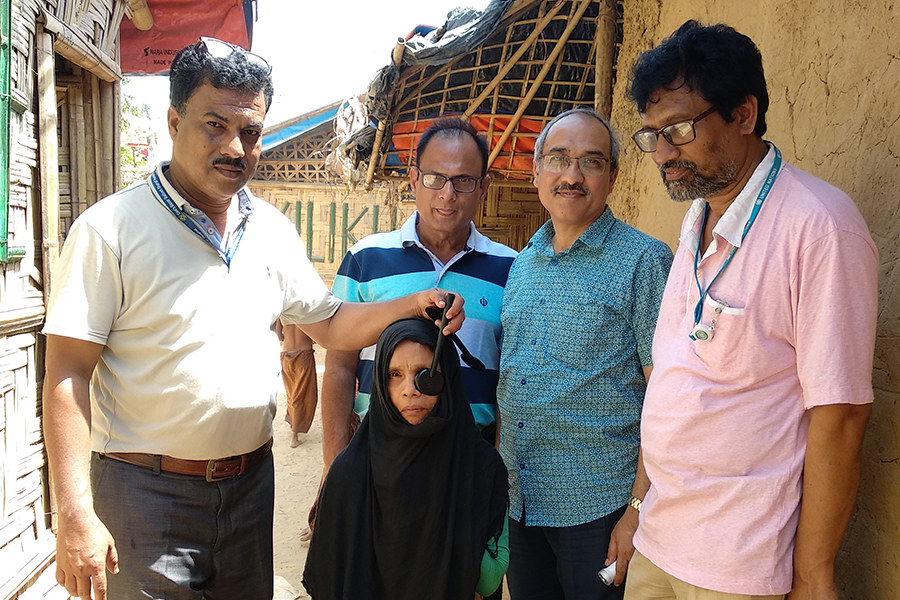2.14% Rohingya Refugees aged 50 or above are blind: RAAB Study
As many as 2.14 percent of Rohingyas aged 50 years or above living in Cox’s Bazar refugee camps are suffering from blindness, says a study.
The findings were revealed from the Rapid Assessment of Avoidable Blindness (RAAB) among the Forcibly Displaced Myanmar Nationals (Rohingya refugees) which have been published in the journal PLoS ONE, the International Agency for the Prevention of Blindness said in a statement on Wednesday. Professor AHM Enayet Husain, Directorate General of Medical Education, Ministry of Health and Family Welfare in Bangladesh announced the assessment, it added.
Professor Husain, lead author of the paper, said, “We found that the 2.14% of the Rohingya refugees age 50 and above are blind. We found that most of the blindness and severe vision loss is due to cataract while most of the moderate and mild vision loss is due to uncorrected refractive error. Over 95% of all blindness and impairment is due to avoidable causes.”
Co-author Dr Munir Ahmed of Orbis Bangladesh noted that “The data provided by this survey will help inform the provision of eye services for several years to come. The survey confirms that our services have been effective – 80% of the Rohingya who had been blind by cataract were able to receive surgery as needed.”
Co-author Dr Jerry Vincent of Seva Foundation noted that “We found that only about 5% of those who need eyeglasses had them, so there is a need to ramp up dispensing of eyeglasses.”
“Beyond the Rohingya, there are over 25 million refugees worldwide and most refugee population lack eye care. The multi- agency collaboration used to conduct this survey and to support eye services provides a strong example that could be replicated in other refugee populations.”
Co-author Johurul Islam of CSF Global noted that CSF Global has now conducted 16 RAAB surveys in Bangladesh. “The RAAB methodology was designed to conduct district level surveys. With this survey, we have demonstrated that the RAAB methodology can be successfully implemented in the context of refugee camps.”
Co-author Yuddha Sapkota, the IAPB Regional Coordinator said that IAPB has now supported RAAB surveys in five countries in Southeast Asia – Nepal, Bhutan, Myanmar, Timor-Leste and Maldives. “Although the Rohingya refugees are a special population in a unique context, by using the standardized RAAB methodology we are able to directly compare our findings for the Rohingya with the numerous other populations in Southeast Asia and elsewhere where the RAAB methodology has been used. Ideally we will repeat this RAAB survey in about 5 years so that we can measure the reductions in blindness and vision impairment.”
Co-author Dr. TP Das, IAPB Regional Chair for Southeast Asia commented that “The collaboration of IAPB member agencies, government and other agencies in conducting this survey and in responding to the eye needs of the Rohingya provide yet another example of how we are much stronger working together.”
Date: 23 december
Source: Orbis
